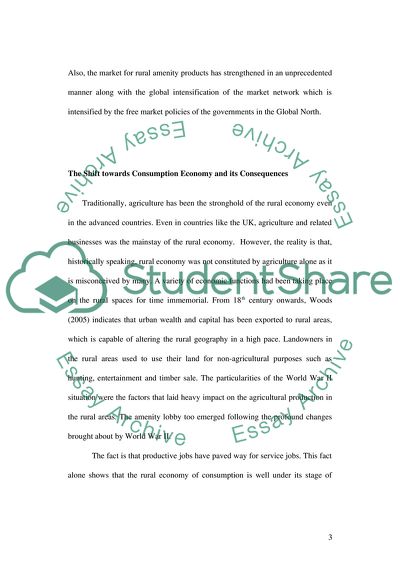Cite this document
(Spaces in the Global North Have Become Landscapes of Consumption Research Paper, n.d.)
Spaces in the Global North Have Become Landscapes of Consumption Research Paper. Retrieved from https://studentshare.org/agriculture/1554708-discuss-the-contention-that-rural-spaces-in-the-global-north-have-become-landscapes-of-consumption-rather-than-traditional-landscapes-of-production
Spaces in the Global North Have Become Landscapes of Consumption Research Paper. Retrieved from https://studentshare.org/agriculture/1554708-discuss-the-contention-that-rural-spaces-in-the-global-north-have-become-landscapes-of-consumption-rather-than-traditional-landscapes-of-production
(Spaces in the Global North Have Become Landscapes of Consumption Research Paper)
Spaces in the Global North Have Become Landscapes of Consumption Research Paper. https://studentshare.org/agriculture/1554708-discuss-the-contention-that-rural-spaces-in-the-global-north-have-become-landscapes-of-consumption-rather-than-traditional-landscapes-of-production.
Spaces in the Global North Have Become Landscapes of Consumption Research Paper. https://studentshare.org/agriculture/1554708-discuss-the-contention-that-rural-spaces-in-the-global-north-have-become-landscapes-of-consumption-rather-than-traditional-landscapes-of-production.
“Spaces in the Global North Have Become Landscapes of Consumption Research Paper”. https://studentshare.org/agriculture/1554708-discuss-the-contention-that-rural-spaces-in-the-global-north-have-become-landscapes-of-consumption-rather-than-traditional-landscapes-of-production.


